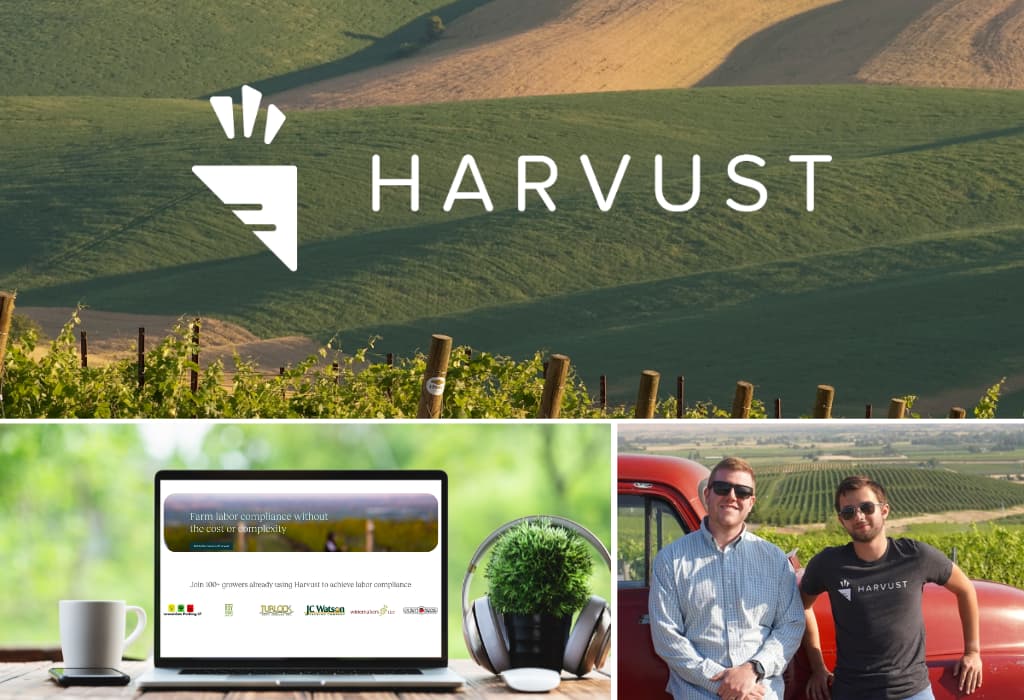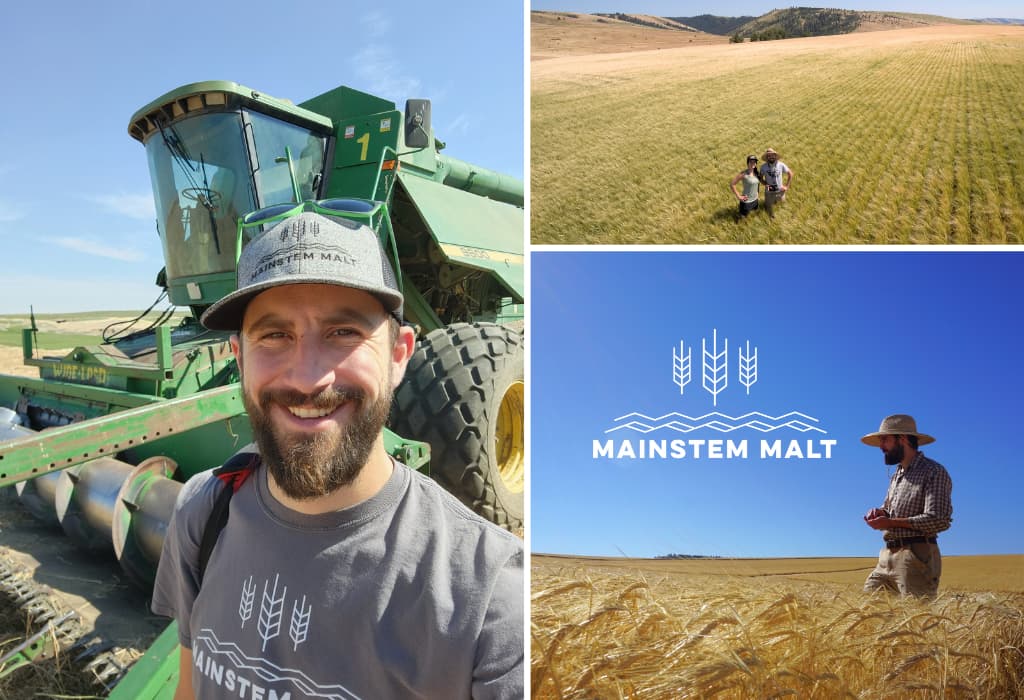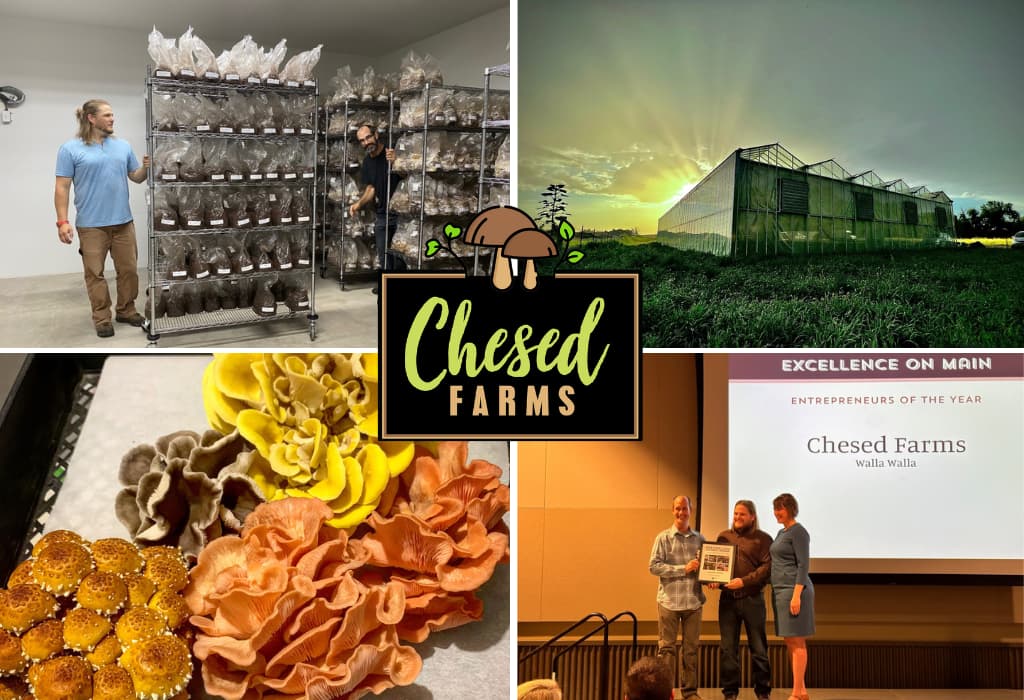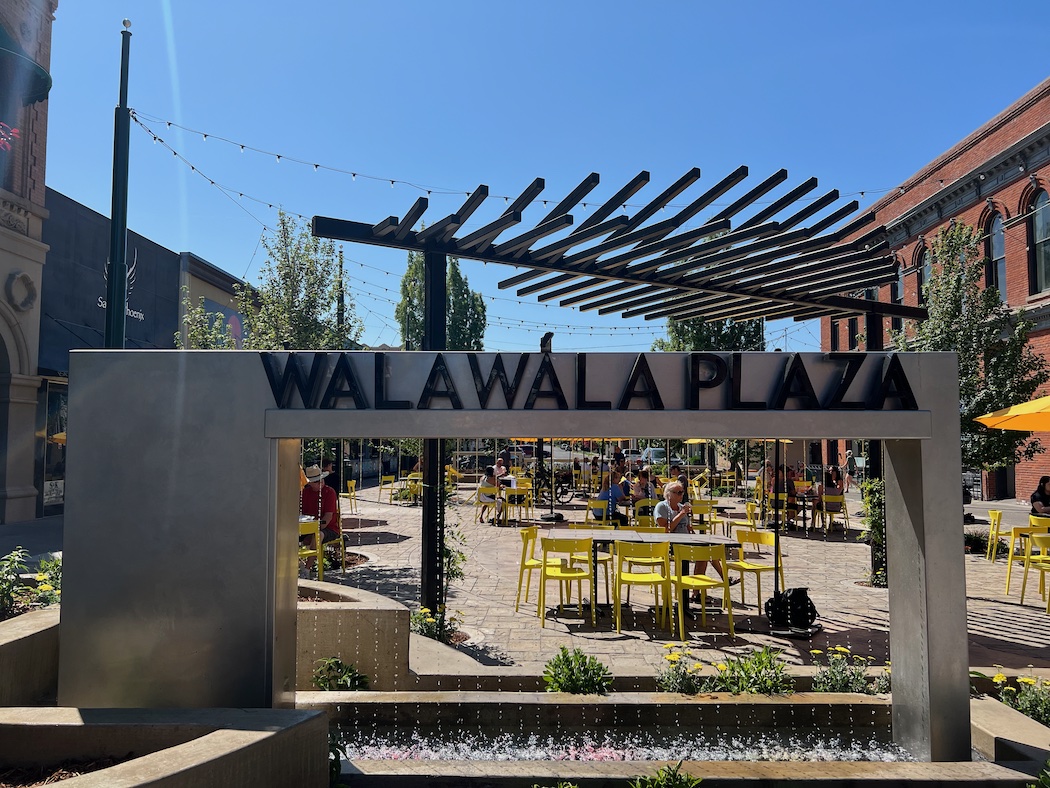
Harvust
Walla Walla ag software firm Harvust may be known today as a successful human resources management conduit for American farms. In the beginning, though, its co-owners set out with a slightly different mission.
“Harvust 1.0 was this recruitment tool,” co-owner Riley Clubb says. “You might think of it like Uber for farm jobs. People looking for jobs would open the app and could look for work on a map. You could see such-and-such a place hiring people Friday to pick apples for $42 a bin.”
Clubb and business partner James Christopher Hall had posted flyers all over Eastern and Central Washington to get hundreds of farmworkers signed up. The model worked well for small operations. But getting big groups for larger growers felt impossible with child care, transportation and other barriers. The duo changed gears after identifying a different farm labor issue they could tackle.
“All of these farms we were going into — there were stacks and stacks and stacks of paper everywhere,” Clubb says. “You’d see eight people at a table, signing the same things and dusty cabinets with binders of safety meeting records and stuff like that.”
They refocused. While it couldn’t yet bridge the gaps between employers and the labor pool, Harvust could streamline and speed up onboarding, training, compliance and communication, plus integrate payroll and timetracking systems.
That reconfiguration and an encounter at a sandwich shop were among the twists in their journey from startup to success.
Incorporated in 2017, Harvust launched with $20,000 in combined initial investment from personal savings. Clubb and Hall bootstrapped the business, using internal cash flow and revenue to reinvest in the model. An angel investor contributed funds a year or so after the launch. Two small-business loans also helped support their vision. Those resources allowed them to function and grow without seeking institutional capital. In the third or fourth year the business generated enough revenue for owners to draw paychecks.
“To this day, we’re probably not paid what we would have been making from another company,” he says. But Harvust now has full-time staff.
The app-based model was free of traditional business overhead costs associated with product manufacturing or brick-and-mortar operations. It also was relatively easy to adjust to market needs when Harvust changed directions, Clubb says. To those considering a bootstrap approach to financing, he says having another source of personal income — a separate job or the support of a partner, for instance — may be critical.
The financing experience has left him skittish around venture capital investment. While the app was pitched to a number of venture capitalists — some didn’t have interest in it and others weren’t the right fit — one, Clubb says, invested in a competitor while performing due diligence with Harvust. “I will be surprised if I ever attempt a raise from VCs again, to be honest, after that experience,” he says.
The business partnership created an immediate connection for Clubb and Hall when they met at a Walla Walla co-working space. The two bonded over their then-recent experiences in Boston — Clubb as an MBA graduate from MIT’s Sloan School of Management and Hall as a participant in a startup quantitative hedge fund.
Hall was working on the farming modernization project. With family roots in the wine industry, Clubb loved the idea and lobbied for a partnership. Thus began Harvust.
A year or so after the launch, good fortune struck through a connection in a sub shop where Hall worked. A customer visiting town inquired about local business ventures as he ordered a sandwich. Hall came forward to share about his app with the man, who turned out to be a professor of entrepreneurship at Stanford University.
The next day over lunch, Hall and Clubb became fast friends with him. He presented an investment in Harvust with no expectation of anything in return.
“We gave him equity anyway because it’s the right thing to do,” Clubb says. The duo got to pick the valuation terms. “That’s an extremely unique and rare situation that I wouldn’t count on again,” Clubb quips.
Along with that equity pool, the duo secured small loans from QuickBooks and Stripe.
In 2021, Harvust was named “Entrepreneur of the Year” in the American Farm Bureau Federation’s Ag Innovation Challenge. The prize was $50,000 in startup funds.
In the years since Harvust began, Clubb says the wave of generative AI has removed technical barriers for entrepreneurship. He’s used chatGPT to build other apps. That includes the 2023 launch of Seek, a low-code spiritual growth app that garnered coverage from Forbes. He continues experimenting and learning with a goal to deploy more apps that meet modern needs.
“It’s a good encapsulation of how much things have changed for me as an entrepreneur. I build things that I would like and want to use,” he says. “The goal is to see if there’s anyone else interested in it.”



